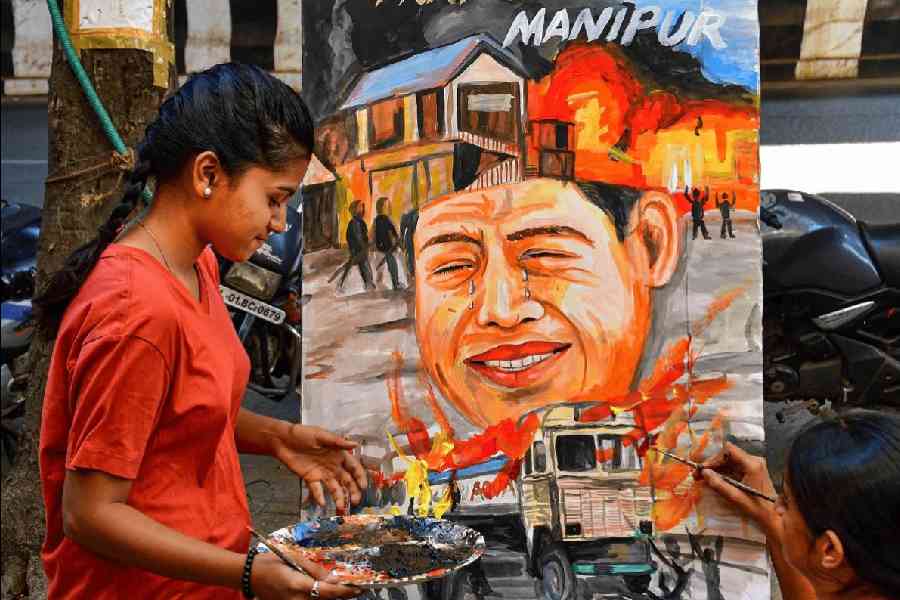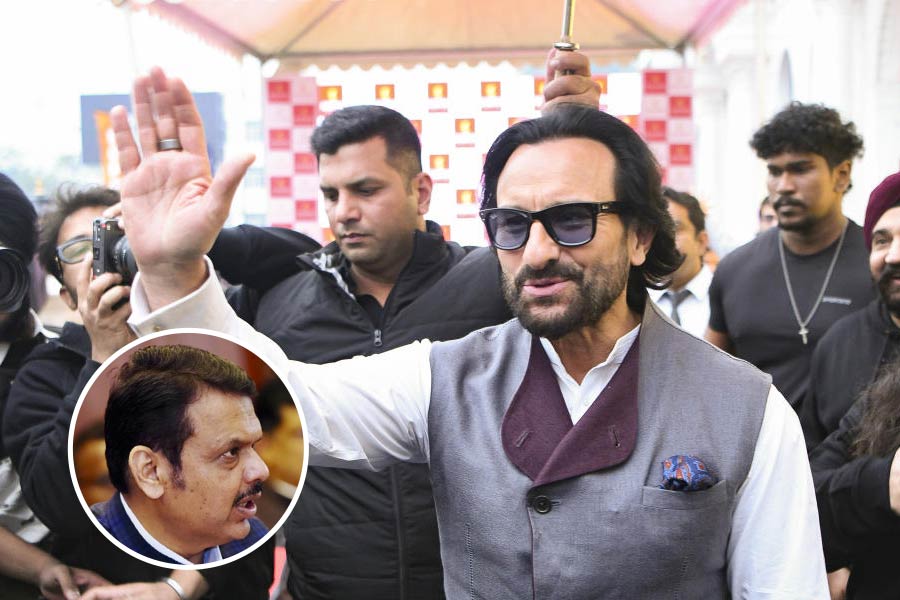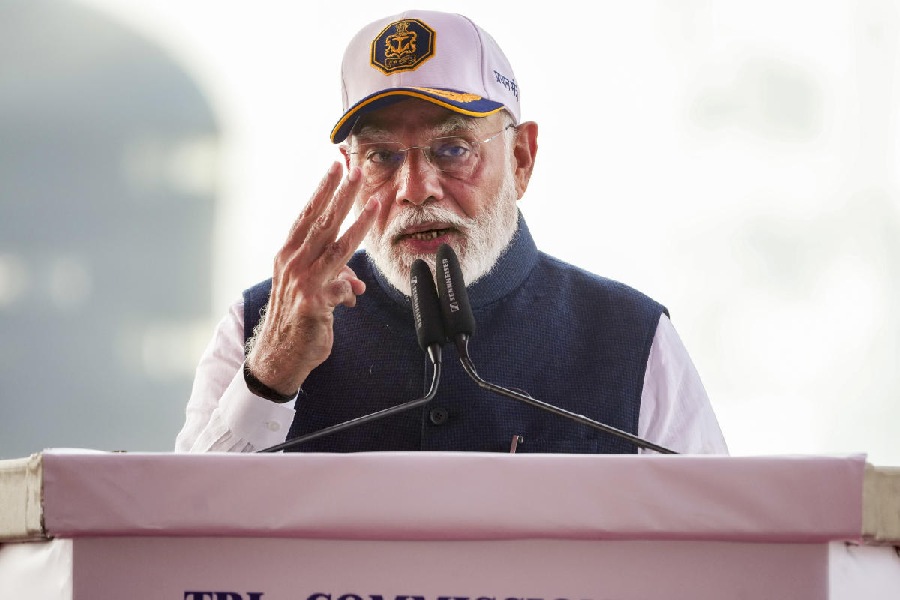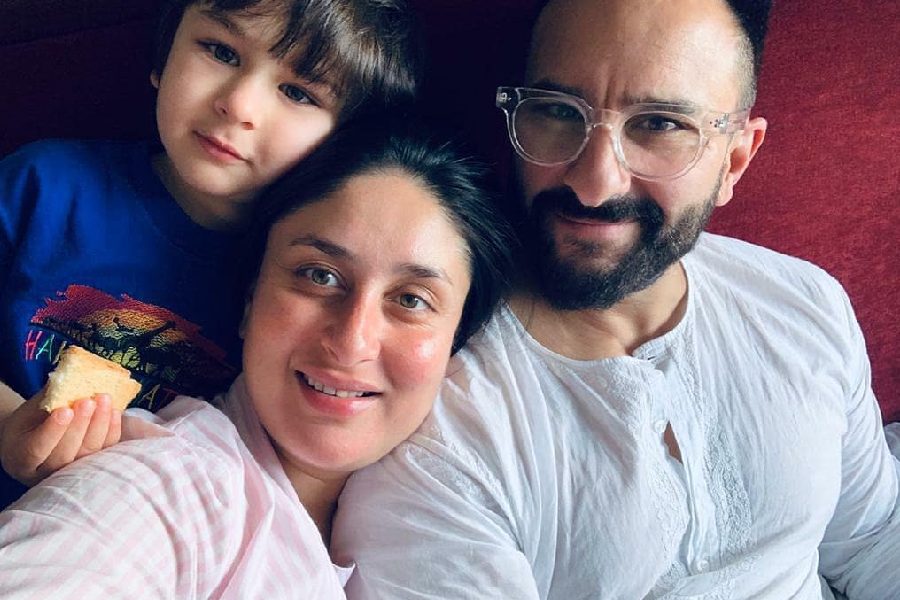“Not Guwahati, Not Shillong, but it is #Imphal that is our region’s heart and frontier of possibilities — its wit, pleasures, poetry, music, crime, cinema, intoxications, shelters, performances, warlords and heartbreaks…
Like Beirut of the Arab world.
O history. O hate divine”
Tarun Bhartiya, Shillong-based film-maker, in a mid-June tweet when Manipur had been aflame, another time in its disrupted annals, a month and a half.
To which an old friend added in a telephone conversation from Imphal recently: “How true, and for the rest we are just warring ethnicities somewhere far away because that makes it easy for those others to not acknowledge the nature of the state we have.”
Nearly a quarter of a century ago, I spent ten days on a reporting assignment in Manipur. I turned in a series of stories and returned convinced that Imphal would remain at once a wondrous and woe-begotten capital, a bedraggled beauty barbed and bandaged against its own devices. I also returned with a sense that where I lived and mostly worked — Delhi and the Indian mainland — nobody cared.
It is now more than two months since violence began to pirouette across Manipur’s valleys and hills and the prime minister hasn’t uttered a word. He has campaigned and been courted, he has been surrounded by song and dance and by political burlesque, such as the one we are witnessing in Maharashtra. He has, famously, travelled abroad. Upon his return, he is meant to have inquired of colleagues what he had missed while he’d been gone. Nobody, it seems, uttered the word, Manipur.
But that may not be unusual for Manipur. It’s part of that unmindful cloud coasting the periphery of our consciousness that’s everything northeastern. How many of us can even name the Seven Sisters and their capitals straight off? How many of us know there existed a designated ‘Brother’ state for a while? It’s all part of the mishmash geography splayed in the mists of the east where, from time to time, turbulent things happen and then settle down. We will lustily wave the tricolour for Mary Kom and Mirabai Chanu, but we may not much care where they come from or what happens there. As long as those parts don’t turn another colour on the global map — or threaten to — it’s all right. For decades now, and for a succession of governments in New Delhi, Manipur has been about subcontracting power to favoured franchisees and leaving them with the mess of holding it.
Manipur marinates in multiple toxicities — ethnic ambition and rivalry, gun-runners and drug lords, the shadowy and chancy interplay between underground groups that are barely even underground, the unreliable ambiguities of a flung borderland where alien insurgencies and their attendant symptoms are also at play. There is, would you believe it, in this hot-pot, a Tamil Sangam, the detritus of Second World War soldiery, that operates with menace and profit out of Moreh, a smuggling post verged on Myanmar that’s notorious for its gun and drug syndicates.
Don’t forget the competitive appetites of power franchisees, adept at and ready to play every trick in the book. Don’t forget the aspirations, refreshed or thwarted, of warring ethnic demographies. Don’t forget the diviners of Hindutva, probably the most recently plopped ingredient into the mix; they may have found in sections of Manipur’s majority Meitei standard-bearers of eastward expansion.
The slightest imbalance in this precarious equilibrium can be like a gun-powder trigger to the marinade. The current eruption had been coming a while. Why nobody paid heed or erected defences challenges understanding. “People in the Imphal valley had been arming themselves and warning of strife for at least two months now,” a well-informed and connected Manipuri friend told me last week. “Tensions between the Meitei and Kukis were simmering. We have 45,000 army jawans in Manipur, leave alone other forces. How could this have been allowed in the first place? And why is it festering? This is abject failure on every front.”
But before the failure came a miscalculation. The ruling Bharatiya Janata Party and the roving Rashtriya Swayamsevak Sangh tried running with the hare and hunting with the hound, a trick of proven inadvisability. Even more so in Manipur, where, it would appear, there are only hounds, no hares. The Meitei believe, probably rightly, that they own the Establishment and its instruments — they are not only the majority population but they also back the BJP and are the darlings of the RSS cult. Not all Meitei consider themselves Hindus in the way the RSS envisions Hindus, but groups like Meitei Leepun and Arambai Tenggol, both virulent arrowheads of the ongoing hostilities, have become inseparable from the Hindutva project. They haven’t been shy recently of holding the State to ransom on the dare of violence.
But the Kuki combatants, mostly resident in the hills, won’t be heckled or reduced; they won’t have their share of reserved spaces curtailed. The BJP cut a pre-poll deal with the Kukis too; after all, they will rightfully demand their end of the bargain. Their units are well-armed, they enjoy, to fabled degrees, the sympathy and the support of the Assam Rifles with whom they have trained, they are well-represented in the upper echelons of the state police force, thanks to reservations. They have ample access to arms, their own and those whose heist the security forces wink at. The Kukis are no pushovers. If the Meitei are hounds, the Kukis are too. Little thus far has provided hope that they can be separated and a kind of truce restored, the beleaguered government of N. Biren Singh least of all.
Most of those familiar with Manipur reckon that the one agency that could step in and begin to enforce order is the army, no stranger to the region and probably most skilled at how to go about beating back what is clearly a civil war situation. But the army in Manipur is probably grinding its own grouses — it wants the Armed Forces (Special Powers) Act back as a pre-condition; it probably wants the civilian administration to stew while it ponders the wisdom of ordering AFSPA off. Does that ring a discordant bell, kindle memories of someone by the name of Irom Sharmila, also from Manipur?
O history! O hate divine!
sankarshan.thakur@abp.in











